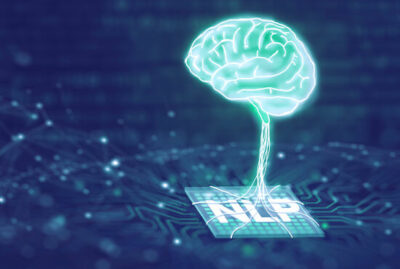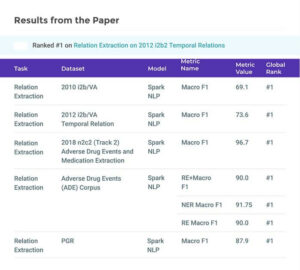Innovations in artificial intelligence (AI) have had a significant impact on the field of medical science and personalized medicine. Patient medical records hold vital information which helps in deciding the appropriate treatment. These patient records consist of tabular data such as medical history, diagnosis, demographics, and unstructured data, including personalized doctor notes. Traditionally, healthcare providers manually process all this information and decide on a course of action, but AI aims to change this approach.
Natural language processing (NLP) is the field of AI that deals with processing textual data. AI researchers have been applying NLP techniques to solve problems in medical science for a long time. These techniques help extract embeddings for critical information from the doctor’s notes to help train machine learning models.
To understand how NLP is applied in healthcare, we have talked to the following speakers of the upcoming NLP Summit 2022, who work in some of the top AI-centered organizations:
- Veysel Kocaman, Head of Data Science at John Snow Labs
- Sam Schifman, Chief Architect at Diameter Health
- Timothy Laurent, Principal Engineer – Machine Learning at Invitae
- Yanjun Gao, Postdoctoral Research Associate at the University of Wisconsin-Madison
Let’s see what the experts had to say!
What are the Most Important Applications of NLP for Personalized Medicine?
The speakers highlighted the importance of medical NLP in unlocking information from clinical notes. A healthcare provider or doctor’s note is the most comprehensive information regarding a patient. It contains information about the patient’s illness, medical history, and minute details, such as previous medical history. Insights generated with NLP, combined with diagnostic results, help doctors decide on the most effective treatment plan.
Veysel Kocaman, Head of Data Science at John Snow Labs, explained the use of NLP in healthcare for deciding treatment plans in the following words:
“The unstructured medical text reports are a rich source of information that might offer critical insights regarding the longitudinal journey of a patient. The route of medication or treatment process might change from one patient to another given the underlying factors such as clinical history, genetic predisposition, and the correlation between existing conditions and symptoms, which all can be found in text data. Unlocking this data enables us to understand both the genetic basis of disease but also the severity and progression of the illness. NLP can provide a repeatable and transparent means of accurate computational phenotyping from these data, driving precision medicine.”
Talking about aiding doctors, Yanjun Gao, Postdoctoral Research Associate at the University of Wisconsin-Madison, described NLP applications as a “Clinical decision support system” that aims to improve bedside care efficiency and reduce medical errors.
What Data can be Used to Apply NLP for Personalized Medicine?
Hospitals have multiple sources of healthcare data, and we wanted to find out what data benefitted NLP models the most. Our experts deliberated that almost every source of textual information regarding a patient can be used to apply NLP. Timothy Laurent, Principal Engineer – Machine Learning at Invitae, summarized some of the most critical pieces of information in the following words:
“Patient medical records, diagnostic reports, and communication logs of patients with their providers can all be mined for signals that can inform an approach to personalized medicine.”
Sam Schifman, Chief Architect at Diameter Health, argued that apart from the medical notes, we need to broaden our definition of what is essential information in clinical decision-making. He emphasized that social, cultural, and economic facts are vital to determine what will resonate with particular people.
Veysel Kocaman went a few steps ahead and included pathology reports, admission and discharge notes as well as email conversations with the patient as essential data for NLP. He justified the additional information by stating:
“Every piece of information in the text-based medical records might provide critical insights regarding the patients’ future trajectory as well as understanding the hidden implications of treatments and tests applied to cure certain diseases or symptoms.”
What are the NLP Trends for Personalized Medicine in the Next 2-3 Years?
It is quite evident that AI will play a vital role in the evolution of healthcare over the next few years. We wanted to see what trends for personalized medicine our fellow researchers see in the next 2-3 years.
All four experts seemed excited about the possibilities held by AI-assisted medical systems. Sam Schifman highlighted that medical notes and descriptions have significant knowledge buried within them, and NLP will help us dig that information up.
Veysel Kocaman talked about developing NLP models with knowledge graphs (KG). Knowledge graphs would help in building relationships between important entities for better decision-making.
Yanjun Gao took us back to his idea of a clinical decision support system and stressed that medical professionals would have to collaborate with people outside their field for further development.
Timothy gave us some fascinating insights about how a medical procedure could be carried out in the future as he stated:
“In the next several years, we will increasingly harness large language models for clinical decision support. Additionally, as chatbot technology advances, we can expect patients to have new conversational interfaces to learn about their personal health data and potential health concerns that can be investigated with the patient’s care team.”
Concluding Thoughts
NLP plays a pivotal role in developing AI technologies for medical science. AI-assisted systems help providers gain valuable insights about their patients from their medical records. These systems use NLP techniques to parse medical documents such as clinical notes, diagnostic reports, and communication logs to determine the best treatment procedure for any particular patient.
Our fellow interviewees helped us clarify how organizations can utilize NLP techniques for their benefit and what steps should be taken by medical centers to get the maximum output from their healthcare data. They also stressed the need for more focus on ETL pipelines and data sharing between hospitals and medical centers.
Finally, we discussed the future use of natural language processing in healthcare and medicine. From more advanced knowledge graph-based models to AI chatbots for healthcare, it is safe to say that we are heading towards an AI-driven medical revolution.
Join more than 50 expert speakers and the worlds’ largest NLP community at the virtual NLP Summit 2022 on October 4-6! Three days of immersive, industry-focused content including technical sessions, live Q&A sessions with the speakers and lots of networking.






























